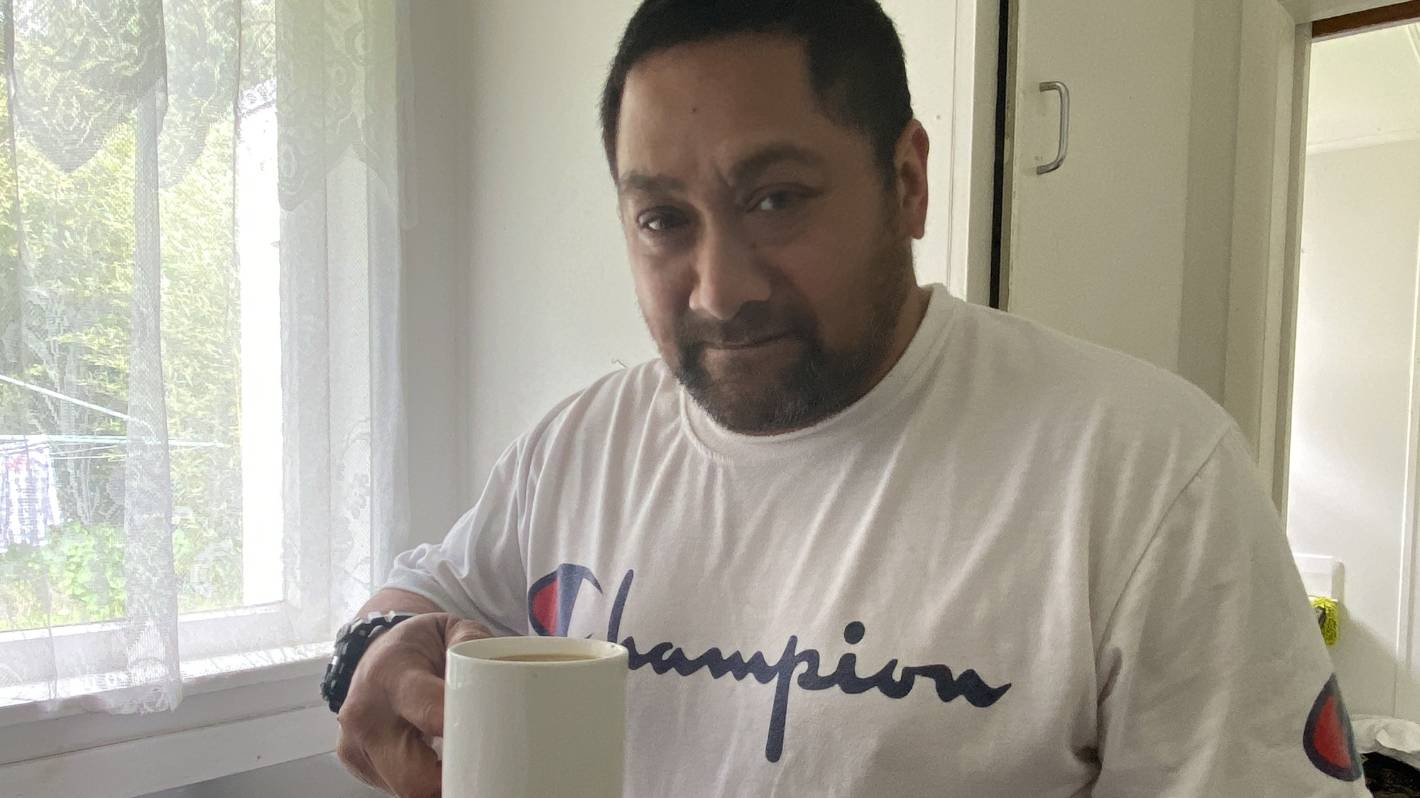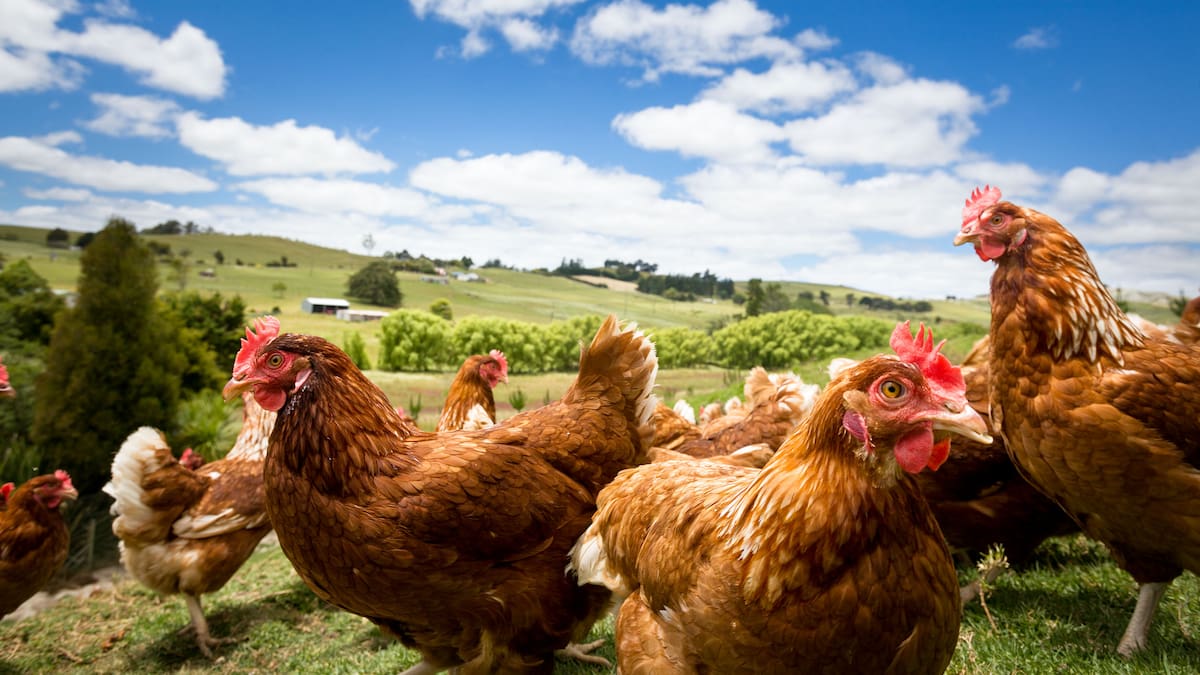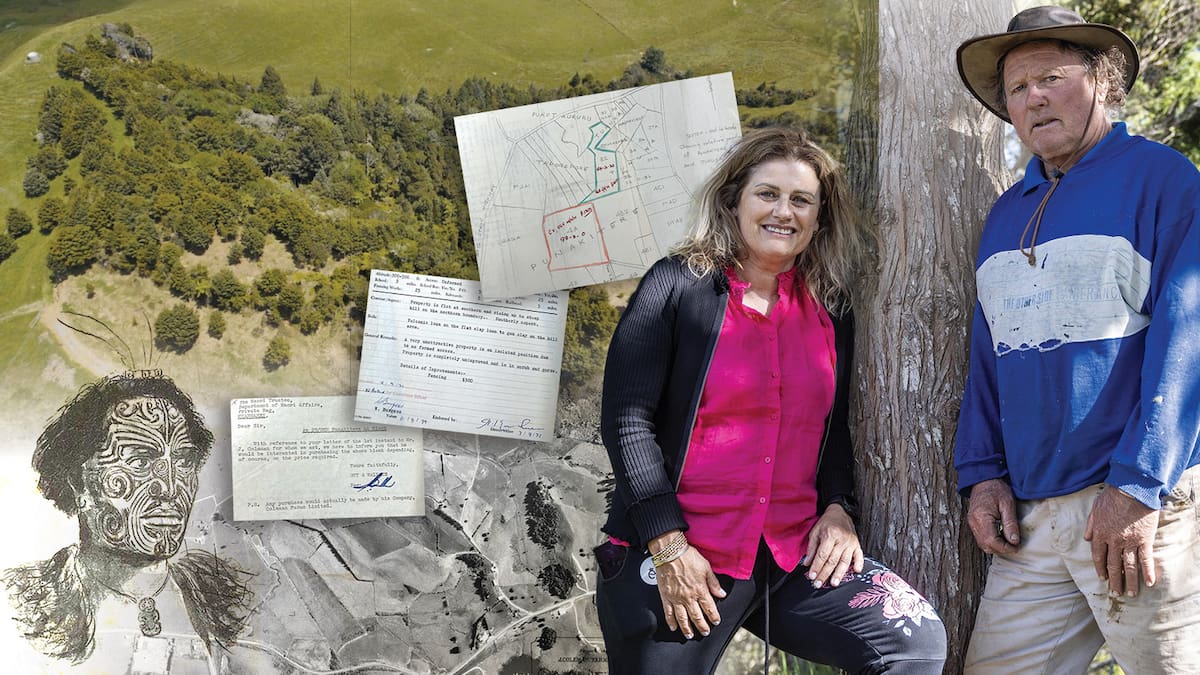Kaitāia residents say their tap water smells of chlorine, curdles milk in a cup of coffee, fades clothes and sometimes leaves a rash.
But Far North District Council says its team regularly monitors the town water supply and it fully complies with the appropriate rules.
Pukepoto Rd resident Kelly Smith said the tap water always has a strong chlorine smell and taste, although the levels go up and down.
“I live 100 or so metres from the water treatment plant … it makes your clothes fade and clothes stink of chlorine.”
Smith said having a shower can irritate his eczema and dermatitis, which sometimes feels like his skin is crawling.
He constantly buys bottled water to drink.
Denise Piper/Stuff
Kelly Smith finds his milk splits and curdles when he makes a cup of coffee with tap water, leaving the coffee undrinkable.
Last week, newly bought milk was splitting and curdling every time he made a cup of coffee with tap water, despite having an in-line water filter under his sink.
Smith complained to the council and posted on social media where fellow Kaitāia residents joined in, saying they never drink the town water because of the strong chlorine smell and taste.
When Stuff visited on Monday, a cup of coffee made with the tap water split the milk into small white chunks and made the brew undrinkable.
When the jug was cleaned out with rainwater from a Whangārei rainwater tank and boiled again using rainwater, the coffee did not split and the cuppa was drinkable.
Denise Piper/Stuff
It can be hard to see the white lumps of split milk in a brew made with tap water, but Smith says the taste is terrible.
Smith said three men from the council followed up his complaint, visiting his house to test the water.
Preliminary tests showed the chlorine levels were within the acceptable range, but he was promised the results of a more thorough test.
So, is it possible for highly chlorinated water to curdle milk?
Rob Lake, a science leader in risk assessment, food and social systems at the Institute of Environmental Science and Research (ESR), did not think this would be likely.
Chlorinate drinking water is monitored to be a pH which would not curdle milk, but coffee is acidic and can sometimes curdle milk, Lake said.
Denise Piper/Stuff
Smith has an inline filter under his sink, but still has problems with the tap water being too chlorinated.
However, Auckland University of Technology Professor of Chemistry, Allan Blackman, said it is possible the tap water could be the culprit for the curdling milk.
“Putting chlorine in water gives hypochlorous acid, which is a very weak acid and shouldn’t therefore affect the pH too much unless it’s really concentrated – it’s got to be around pH 4 or so to curdle,” he said.
Blackman said he would love to see science-minded students do some experiments on the tap water, such as comparing with bottled water or water boiled for at least 10 minutes, as well as testing the water’s pH.
“Ideally, you shouldn’t be smelling chlorine in tap water. I guess the bright side is that there won’t be any bugs in it!”
The Taumata Arowai Drinking Water Standards, introduced in November 2022, sets a minimum requirement for free available chlorine levels in chlorinated drinking water – but no maximum – and requires regular testing of both chlorine amounts and pH level.
Taumata Arowai Drinking Water Aesthetic Values, also introduced in November 2022, sets minimum and maximum amounts of chlorine, but stipulates: “Disinfection must not be compromised in trying to avoid taste and odour complaints.”
Far North Waters Alliance Manager Mathew Arthur said the water supplied to Kaitāia customers meets the drinking water standards and is continually monitored.
“Chlorine levels in water supplied to customers in Kaitāia are below the maximum levels set by Taumata Arowai,” he said.
However, the council takes all reports of water quality concerns seriously, which is why staff visited Smith’s property for further testing.



